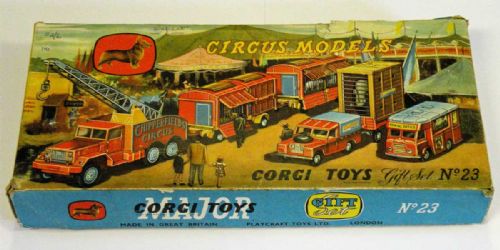
Leading Shropshire fine art auction house Halls is appealing to owners of Dinky, Corgi and Matchbox diecast toy models and Britains farm animals, tractors and agricultural machinery to bring them to a valuation event on Monday, March 5.
Toys specialist Stewart Orr will be available to value items at the Welsh Bridge saleroom, Shrewsbury from 10am to 4pm as he prepares for the next toys and collectibles auction on May 2. The closing date for entries is April 2.
Already consigned to the auction are a collection of around 100 Matchbox diecast toys from the 1970s, which is valued at around £750 and a Corgi Circus Gift set with six vehicles, valued at around £250.
Demand for diecast models is as great as ever and Mr Orr said there seemed to be a national shortage of Dinky, Corgi and Matchbox toy collections coming onto the market.
He urged people to search their lofts, storerooms and garages for old diecast toys, which do not necessarily need to be boxed and in perfect condition to be valuable.
"Prices for toys that are both playworn and in mint condition continue to rise because there is such a shortage on the market," he said. "We are happy to accept large collections or individual toys that can sometimes be worth a small fortune.
"Not all collectors can afford to spend £200 or £300 on a boxed model in perfect condition. The majority are happy to spend less money buying playworn toys that they can meticulously restore to their former glory."
Mr Orr is particularly keen to attract more entries of lead farm animals, tractors and machinery made by Britains, which are becoming increasingly popular with collectors.
"With Shropshire and bordering counties having big farming communities, there is likely to be a good supply of Britains models out there," he explained. "Previously, these items were not recognised as toys but they have now become very collectable.
"Britains made a range of lead farm animals, tractors and machinery after the First World War when they moved away from making lead soldiers, possibly because of a swing against war."
